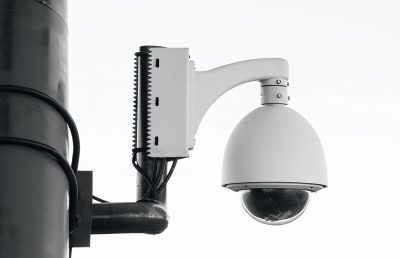
The Boston City Council’s Committee on Government Operations discussed surveillance oversight and information sharing at a virtual working session last Thursday.
Councilors discussed accountability, transparency and oversight in the City’s collection of surveillance data to protect the civil rights and privacy of residents, according to the ordinance.
The docket was sponsored by City Councilors Ricardo Arroyo and Michelle Wu, a candidate in the upcoming mayoral election. City Councilor Lydia Edwards chairs the Committee that receives it.
“As more municipalities move toward electronic data collection used to manage assets and resources efficiently and new technologies are becoming available, the public would benefit from proactive discussion of current practices and future acquisition,” the ordinance states.
The Council proposed the creation of a Surveillance Oversight Advisory Board that would give official policy advice to the mayor. It would be made up of five representatives from different agencies, one being a technology public policy academic.
“If the council does not approve of the use of the proposed new surveillance capabilities, that request that they made to us that we voted to not approve would then be sent to the Surveillance Oversight Advisory Board,” Arroyo said at the hearing.
The meeting also included a debate on how information acquired through the new technologies could be used in the case of exigent circumstances — meaning, according to the ordinance, the police commissioner’s “good faith and reasonable belief that an emergency involving danger of death, physical injury or significant property damage or loss, similar to those that would render it impracticable to obtain a warrant.”
Edwards said at the meeting separate agencies may request information if they disclose their reasoning. For instance, Edwards clarified that an agency would not hand over control of the surveillance system to the Boston Police Chief, but rather that the head of the Boston Police Department would have the footage needed for the situation.
“It’s not a direction to the department, it’s a direction to transparency,” Edwards said. “We’re providing a standard.”
These hearings were sparked by the city’s launch of the Vision Zero initiative: a project that aims to end fatal and serious car crashes using technology and data to understand commuter behavior and patterns.
The City of Boston aims to use technology to “re-imagine its streets” using cameras and sensors to improve navigation and safety.
“Surveillance technology and electronic data gathering can be useful tools for advancing effective delivery and analysis of constituent services, public safety and security,” the ordinance states. “Usage of surveillance technology must include safeguards with accountability to the public in order to protect privacy rights and civil liberties.”
At the meeting, Arroyo said some amendments made to the ordinance were inspired by input received from various stakeholder groups, such as BPD and the American Civil Liberties Union of Massachusetts.
Additions were also derived from input received from working groups — agencies and departments that came together to find areas in which surveillance oversight can improve.
Edwards echoed Arroyo and highlighted the importance of hearing input from different groups affected by surveillance in the city.
“I hope that means to most people how serious we’re taking this, and how much we feel the back and forth in community feedback is key to this,” Edwards said.





















































































































